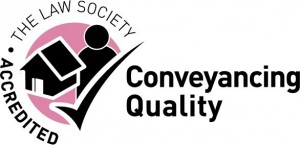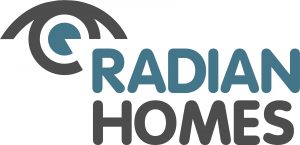Conveyancing Solicitors Specialising in Housing Association and Social Housing Sales
For many people who struggle to afford the full purchase price for a new home, shared ownership might provide the ideal solution. And it’s worth noting that this relatively new form of home ownership is becoming an increasing success story – in the last 15 years, around 150,000 shared ownership homes have been bought by individuals and families in the UK.
What Is Shared Ownership?
Generally, shared ownership (also sometimes called “shared equity”) schemes are run by registered social landlords (RSLs) or housing associations (HAs) – though some private developers also allow you to buy property in this way. There are many shared ownership schemes already in existence, and it seems likely that more will be introduced in the future.
“Part rent, part buy” or “part buy, part rent” are terms often used to describe the way these schemes operate.
Properties bought using shared ownership are usually new builds, or older properties bought back by housing associations that are now being resold.
It is worth thinking about buying a home on this basis if you are unable to raise funds to buy a house on your own. This is because the deposit needed is usually a lot less than with a standard purchase. Buyers usually get the funds for the purchase of the first share in their home by getting a mortgage.
Need help with buying Shared Ownership property? Call our specialist conveyancing solicitors on FREEPHONE 0800 1404544 for FREE no strings attached initial phone advice and your shared ownership conveyancing quote.
This webpage is all about buying a partial share in a housing association property. Click here to find out about joint home ownership
We Are Recommended Housing Association Panel Solicitors
 Our property team have the experience you need when it comes to shared ownership.
Our property team have the experience you need when it comes to shared ownership.
We are on the recommended solicitors panel for Radian Homes, and also regularly deal with a wide range of housing associations including Sovereign, Aster and VIVID (formed from a merger of First Wessex and Sentinel Housing Association). Radian describe us as
“highly experienced in dealing with the various schemes that we have available and will ensure your purchase goes as smoothly and quickly as possible.”
Click here to read some reviews of our conveyancing lawyers from satisfied clients
5 great reasons to consider shared ownership
- They’re an easy way to get onto the property ladder – with deposits as low as 5% of the share you buy.
2. You can purchase bigger shares in your home until you own it 100% – a process known as staircasing. When you staircase the rent that you pay on the share that you don’t own will reduce accordingly.
3. Even when you add the rent and mortgage together, buying using shared ownership is usually more affordable than just plain renting or paying a mortgage.
4. The housing association is responsible for any repairs and maintenance of your home – in the same way as if you were a regular tenant.
5. You can sell up whenever you want to – and will benefit from any rise in the value of your share upon sale
The Process -how does it work?
The Housing Association usually sells their share under a leasehold agreement. The lease is drawn up by the solicitors representing the Housing Association.
While there are differences between each scheme, in general shared ownership schemes have many things in common. The buyer is usually expected to pay a reduced price, and gets in return a stated percentage of the property. [e.g. if the property is worth £100k they may buy a 1/4 share for £25k]. The other share in the property remains owned by the RSL or Housing Association – and in return the buyer pays them rent calculated on that share.
Most shared ownership schemes allow the buyer to keep buying further shares in their property as they raise the funds to do so, with the aim of eventually owning the property entirely.
Bear in mind every shared ownership scheme has their own eligibility criteria. Some shared ownership schemes are only open to people with certain occupations. And in some areas, you could have to join a waiting list – sometimes “preferred key workers” like nurses and teachers can jump the queue.
Shared Ownership Conveyancing: Why choose specialist solicitors?
When it comes to shared ownership conveyancing, both the sales and purchase process are simply more complex than buying or selling a traditional residential property.
Shared ownership schemes themselves are usually quite complicated, and can have confusing terms and conditions. Also, there are a limited number of mortgage lenders who are happy to fund shared ownership purchases.
You need to have a conveyancing solicitor to protect your interests, to clearly explain what you’re buying and to understand how to make sure that the process of your shared ownership purchase goes ahead smoothly – which often means sticking to tight Housing Association deadlines.
It’s therefore very important that you deal with a solicitor who has plenty of knowledge and experience of shared ownership when you are thinking about buying a property on this basis.
But beware – some law firms might quote fees based on the costs for a standard leasehold purchase. That’s probably because they don’t understand what’s involved. Conveyancing for shared ownership properties is more complicated than a “normal” purchase, and the most sensible thing to do is to work with solicitors who can show both experience and knowledge in this area.
Our experienced property team handle shared ownership conveyancing both locally in Wiltshire, Hampshire and Dorset and throughout England and Wales – from our offices in Salisbury, Fordingbridge, Andover and Amesbury.
Your shared ownership conveyancing – how we can help
Our team offer;
- Specialist advice – our shared ownership conveyancing team is headed up by a solicitor with many years experience of acting for a number of housing associations in selling shared property – so we understand exactly how to work with them
- Shared ownership conveyancing across England & Wales – we can help you with your share ownership purchase wherever you live – taking instructions by email, phone and video call
- A fully itemised cost quote for buying, selling or staircasing any shared ownership house or flat
- Full specialist Conveyancing Quality Scheme accreditation from the Law Society
For a free no strings attached conveyancing fee quote, call us now on FREEPHONE 0800 1404544.
What will my shared ownership solicitor do for me?
Our specialist legal team will handle the whole of the shared ownership conveyancing process for you. In particular they will;
- Check the lease and advise you on any potential issues, and in particular what you can and cannot do under the lease.
- Look into the Title to ensure that the party selling the property has the right to do so.
- Do the searches. Mortgage companies require that searches are done before funding any purchase. Even if you are a cash buyer, it’s a good idea to have all of the searches carried out first, so that you know exactly what you’re buying.
- Raise enquiries specific to the property being bought in addition to the standard Law Society enquiries.
- As well as representing your interests, we also work with your mortgage lender to make sure that you can comply with all of their lending conditions.
- Completion of Stamp Duty forms
- Registration of your ownership with the Land Registry
Want to know more about the procedure of buying your own home? Click here to read more about the Conveyancing Timeline Process
Can I buy a bigger share in my shared ownership property?
Staircasing (buying further shares in your property) allows you to both increase your equity in the property and reduce the rent you are paying to your Housing Association.
Whether or not you can buy a bigger share depends on a number of factors – including the type of lease you have, whether the property is a flat or a house and how many shares you purchase. However with many schemes, you may be able to eventually own your home outright, giving you the opportunity to sell it on to anyone you wish in the usual manner.
Watch out however. It’s not unusual for shared ownership leases to restrict the share that you can buy at any one time (e.g. at least 10% and no more than 50%) and most Housing Associations impose administrative charges when it comes to staircasing.
In addition, some housing associations simply don’t allow you to buy over 80% of your property – in which case you’ll never own your home outright.
Click here for more information about staircasing.
How much will it cost?
Addition to the actual cost of buying a share in your property, and in addition to your legal fees, you will also need to budget for the following expenses;
- Searches – if you are funding the purchase by getting a mortgage, the lender will insist on a series of searches to make sure the property comes up to standards.
- Survey – a mortgage lender will do a basic survey, but this might not reveal structural problems or issues like damp. We normally recommend a full survey – so you know exactly what you’re buying. That’s not usually necessary if you are only staircasing.
- Stamp Duty – also known as SDLT which is a government tax paid when buying property
- Housing Association Notice Fee – this is paid when the Housing Association is advised of the transfer and the mortgage (if applicable).
- HA Service Charge – this covers the cost to the Housing Association of insuring and maintaining the property’s structure.
And don’t forget, that after you’ve bought your shared ownership property, as you don’t own the property outright. You will also have to pay some rent to the Housing Association – and probably a service charge for your contribution to maintenance of the property on top of that.
Selling a Shared Ownership Property
You have two options when it comes to the sale of a shared ownership property:
1. Just sell the part which you own
2. Buy the remaining share in the property and then sell the entire property.
If through staircasing you have bought a full 100% share in the property and therefore own it outright, then in most cases you are free to sell the property on the open market.
If you still want to sell the property but you do not own all of the shares, then most leases contain a clause which says the housing association will have the right to buy back your share, or alternatively, nominate a buyer for it. This is known as the Right of First Refusal.
In essence, it means that if you want to sell your property, but don’t yet own 100%, you will have to offer to sell it first back to the landlord, or to a buyer nominated by the landlord at its market value. What’s more the sale price will be set not by you, but by an independent surveyor your landlord will appoint.
If your lease does contain this kind of clause, but the housing association can’t find a buyer for the property or buy it themselves in a reasonable time, then usually you are then free to sell it in the usual way.
Buying shared ownership property – is there a downside?
Like most things in life, nothing is perfect. And these kind of schemes do have some disadvantages which you need to be aware of in advance. These include;
- Location. Unlike buying a property on the open market, you are more limited in the areas you can choose to live in
- Staircasing Costs Can Rise. Although the option to buy more of your property in due course is great, there can be a problem if, in a rising house market, your property increases in value – as that means you’re going to have to pay more to buy the remaining share of your own home. The reason for that is simple – the price of buying any increased share is based on the current market value of your property – as valued by an independent surveyor.
- The possibility of negative equity. There is no guarantee that your shared ownership property will increase in value. From time to time, property prices do drop – especially during recessions. And in any event, if you have bought a new build property, you will probably find that just like a new car, your new home depreciates as soon as you move in. that’s because new build properties include an extra premium on the purchase price. Now that’s fine if you intend to remain there – but if the price of your home drops and you then want to move, you could fall into negative equity and lose money on the sale
- Additional Fees With Staircasing. Don’t forget, if you want to increase your share you own in your own home, it’s not just paying for that additional share you need to budget for. Don’t forget the other costs you will need to cover:
◊ Valuation fee – a surveyor, appointed by the housing association but paid for by you, will need confirm the current market value of your home
◊ Legal costs – changes to your existing lease will require solicitors fees
◊ Stamp duty – if you did not pay the full stamp duty when you bought your first share, you may have to pay more stamp duty when staircasing
◊ Mortgage fees – if in buying your additional share you decide to change lenders (perhaps to get a lower interest rate) expect to pay arrangement and valuation fees to your new lender
- Staircasing Limits.Some housing associations place limits on staircasing – perhaps an upper limit below 100%, a maximum number of staircasing stages or a minimum period of time before you can staircase. It’s also quite common for your lease to include a provision that you can’t staircase while either your rent or service charge are in arrears.
- Service Charge. Don’t forget that you will probably have to pay a service charge – which is likely to increase with time. In addition, you may have to pay for more substantial work from time to time – e.g. repairing a lift or the roof.
You should also be aware that you will usually have to pay that service charge for a 100% share of the property- and that’s true even if you actually own as little as 25% yourself.
- No Renting Allowed. Most shared ownership leases do not allow any renting or subletting at all.
- Restrictions On What You Can Do. Housing association leases can be very complex, with a number of restrictions on what you can and can’t do. In particular, you are likely to need to get the written permission of the landlord before you make any improvements or alterations. Some housing association leases even require permission for redecoration
What protection do I have under shared ownership?
Although shared ownership is heavily supported and promoted by the government, you do need to be aware of the following;
- unlike a mortgage (unless interest rates increase), your rent is likely to increase over time
- you need to make sure you keep up-to-date with both your rent and mortgage payments – otherwise, the housing provider could apply to repossess your home


